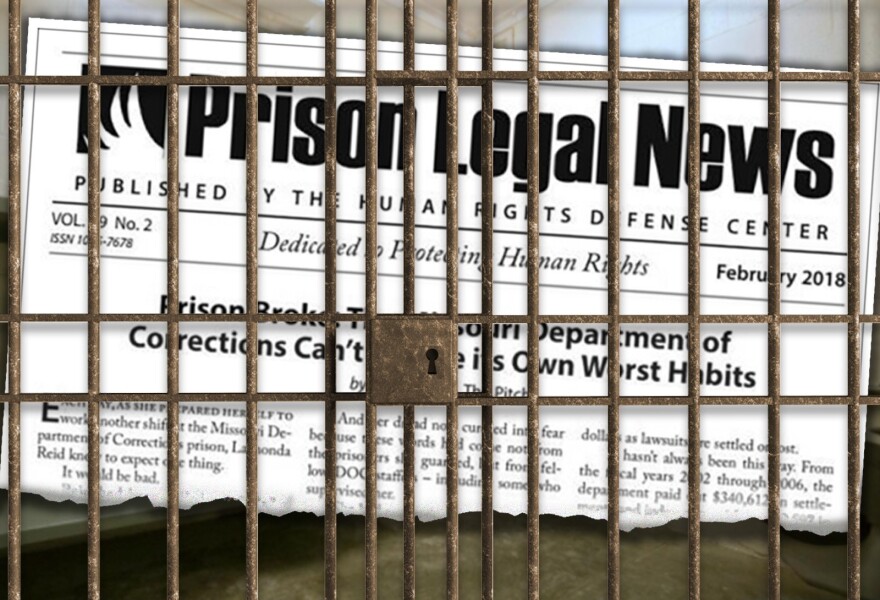A human rights group has lost its bid to bar the Johnson County jail from withholding magazines and other publications from jail inmates.
A federal judge denied the Human Rights Defense Center’s request for a preliminary injunction, ruling the jail was within its rights to withhold the materials.
In a lawsuit filed in September, HRDC alleged the staff at the New Century Adult Detention Center refused to deliver dozens of HRDC mailings to inmates, in violation of their First Amendment rights.
But in her 16-page ruling, U.S. District Judge Holly Teeter said that HRDC was not prohibited from sending its publications to inmates – only those with stickers or labels. The jail’s policy prohibits “plastic/wrappings, labels or stickers” on letters or postcards to ensure that contraband isn’t smuggled into the jail.
Although HRDC argued the jail’s mail clerks could simply cut off the labels and stickers, the jail said that would be too time consuming and would require an additional 40 to 60 staff hours per month.
For similar security reasons, the jail also does not accept packages without prior approval. HRDC, however, argued that the policy violates inmates’ First Amendment rights because it merely changes the time when packages are inspected, not whether they are inspected. But Teeter ruled the policy promotes efficiency, which is a “legitimate penological interest.”
Teeter's ruling does not end the matter; HRDC can still try to prove its case. But in denying its request for an injunction, Teeter found the group was not likely to prevail on the merits.
Paul Wright, executive director of HRDC, could not be reached for comment.
HRDC is based in Florida and focuses on prisoner rights. It publishes two monthly magazines, Prison Legal News and Criminal Legal News, as well as a variety of books on matters of interest to prisoners. About 3,000 prisons and jails across the country receive its publications.
HRDC claimed that the Johnson County jail had rejected at least 58 of its publications.
Prisons and jails routinely withhold or censor materials that could threaten security. Until recently, for example, the Kansas Department of Corrections banned roughly 7,000 titles from its facilities, including books like “A Clockwork Orange,” “Invisible Man,” “Twelve Years a Slave,” “Excel 2016 for Dummies,” “Tarot Fundamentals” and issues of magazines like Bloomberg Businessweek, Us Weekly and Elle.
Amid widespread criticism after the list came to light, Department of Corrections Secretary Jeff Zmuda eliminated the list.




